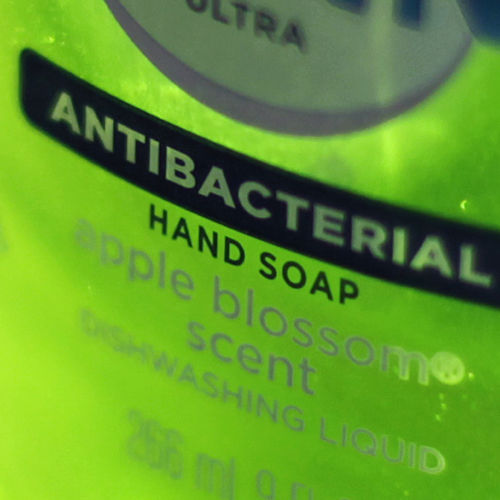A study appearing yesterday in the Journal of Antimicrobial Chemotherapy by Min-Suk Rhee et al. found that while triclosan hand soap did kill bacterial after 9 hours, most people wash their hands for about twenty seconds and then rinse the soap off. In these circumstances, the antibacterial properties of the soap won’t do anything.
Triclosan works by inhibiting the last step of fatty acid biosynthesis, carried out by a protein called fabI. This is an essential function because it is necessary for new membrane synthesis, but a short dose of triclosan might not kill the cell, or even stop it from dividing. A quick shot of triclosan might break all the fabI proteins in all the bacteria on your hands, but this won’t necessarily kill any of them. It may instead slow down the rate at which the cells can make new membrane until they get around to translating new fabI proteins.
It’s worth noting that surgical scrubs are different — they use higher concentrations of triclosan than is allowable in consumer products (triclosan has different mechanisms of killing when it’s more concentrated), and most surgical hygiene guidelines call for spending fifty times as long scrubbing your hands than people normally do.
